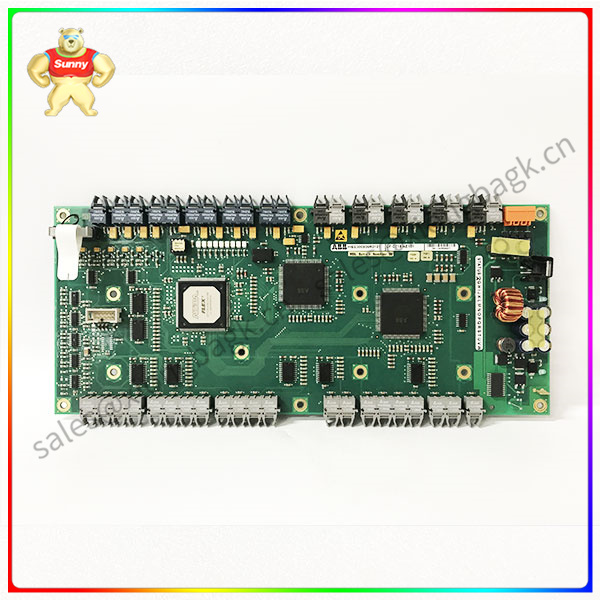Torque sensor: humanoid robot perception core, high six-dimensional force barrier, large cost reduction space
The robot receives sensory information through sensors. Sensor is a kind of detection device, can feel the measured information, and can feel the information, according to a certain law to transform into electrical signals or other required form of information output, to meet the information transmission, processing, storage, display, record and control requirements. Among them, the torque sensor is a device that converts the change of force into an electrical signal.
UFC718AE101 Multi-dimensional force/torque sensor technology barriers are higher. According to the different dimensions of the measured force, the force sensor can be divided into unidimensional (axis) force and multi-dimensional (axis) force. 1) Single-dimensional force: it can detect the force or moment in a single dimensional direction, and the multi-dimensional force sensor refers to a force sensor that can measure the force and moment components in more than two directions at the same time. 2) Multi-dimensional force: The most complete form is a six-dimensional force/moment sensor, that is, a sensor that can simultaneously measure 3 force components and 3 torque components. Compared with the single dimension force, in addition to solving the monotonicity and consistency problems that are sensitive to the measured force components, it is also necessary to solve the inter-dimensional (inter-axis) interference problems caused by structural machining and process errors, dynamic and static calibration problems, decoupling algorithms and circuit realization in vector operations.
According to the different sensing elements, six-dimensional force/moment sensors are mainly divided into three basic types: strain gauge, optical and piezoelectric/capacitance. Each type of six-dimensional force sensor has its unique advantages in different application scenarios. At present, most of the six-dimensional force/torque sensors used in the market are based on strain gauge measurement.

UFC718AE101
UFC718AE101 Six-dimensional torque sensor: The humanoid robot is basically equipped with four six-dimensional force sensors, and the future cost reduction space is large. Batch application field: Used in the end of collaborative robots, aerospace wind tunnel testing, medical field, sports health field, humanoid robot wrist so flexible has its credit. Humanoid robot application: At present, a humanoid robot will be equipped with four six-dimensional force transducers. Large cost reduction space: the price of a single six-dimensional force sensor is more than 20,000, resulting in a high application cost threshold. Domestic manufacturers are trying to reduce the cost, such as Kunwei technology is the realization of the fully automated production of six-dimensional force sensors, diluting the cost of a single sensor with high output, the future in the annual capacity of one hundred thousand or even one million units, the price of six-dimensional force sensors will drop by an order of magnitude.
China’s six-dimensional force sensor market is expected to achieve rapid growth. According to the high-tech Robot Industry Research Institute (GGII) data show that in 2022, the Chinese market six-dimensional force/torque sensor sales of 8360 sets / 239 million yuan, an increase of 57.97%/52.04%, of which the robot industry sales of 4840 sets / 156 million yuan, an increase of 62.58%/54.35%. By 2027, the sales volume of six-dimensional force/torque sensors in the Chinese market is expected to exceed 84,000 sets / 1.5 billion yuan, with a compound growth rate of more than 60%/45%, of which the sales volume of the robot industry is expected to exceed 42,000 sets.
There is still a gap between domestic six-dimensional force/moment sensor and overseas in sensitivity, crosstalk, anti-overload ability and dimensional coupling error. Some domestic enterprises have already landed relevant products and entered industrial application, or some product models have begun to enter the verification and test stage of downstream users.
 中文版
中文版




